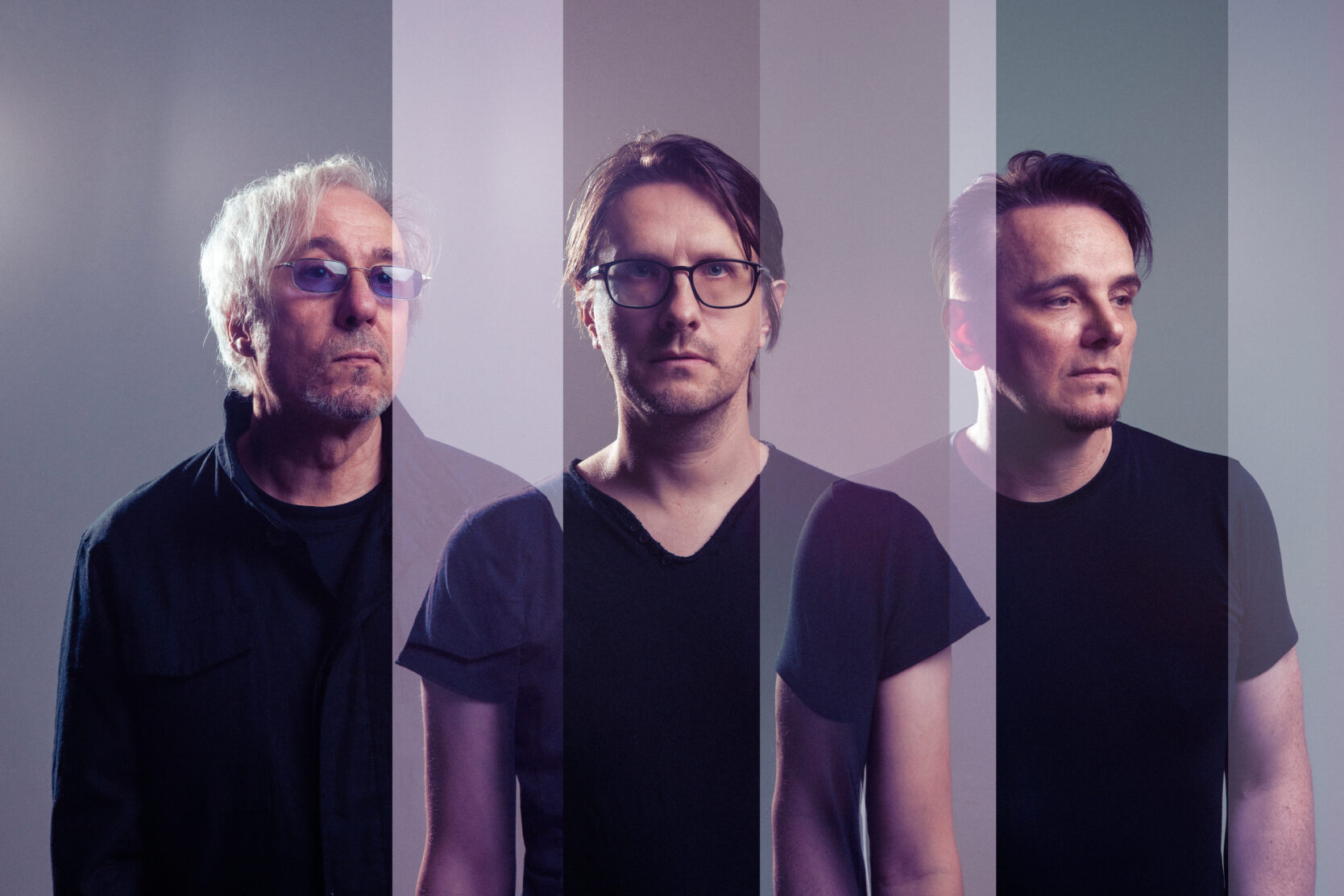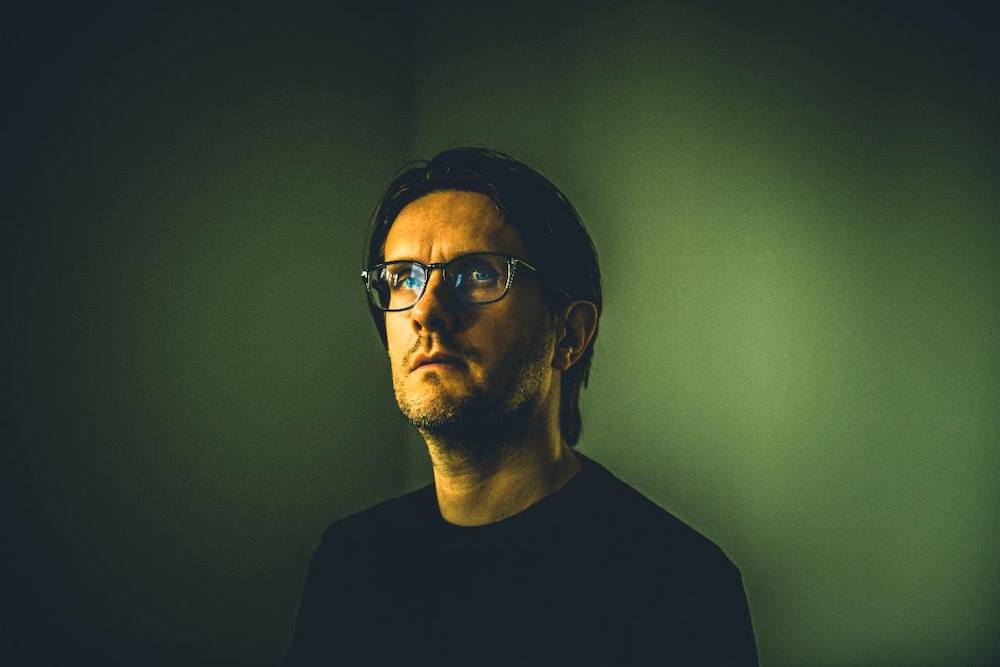By late 2021, the odds of a Porcupine Tree reunion seemed beyond slim.
It had been 12 years since the alt-prog band’s 10th LP (and apparent swan song), 2009’s The Incident, and singer-songwriter Steven Wilson realized his rabid audience wasn’t counting on a follow-up. “Fans had probably given up on [us] ever making another record,” he tells SPIN, his polite eloquence downplaying a hilariously massive understatement.
It’s also not like Wilson initially had Porcupine Tree on the brain. After The Incident, feeling trapped in a hamster wheel of expectations and unspoken resentments, he stepped aside to focus on other projects — including various collaborations (Storm Corrosion with Opeth‘s Mikael Akerfeldt), numerous remixing gigs (King Crimson, XTC), and a solo career that generated more stylistic breadth and commercial success. (His last two, 2017’s To the Bone and 2021’s The Future Bites, peaked in the U.K. top five.)
All the while, he faced constant questions about his old band, and for years his responses were reasonably consistent: “I’m not interested in going backwards”; “My solo work fulfills the musical needs I have now”; “I really can’t say – there are no plans at the moment.”
Then in November, the group’s current trio — Wilson, keyboardist Richard Barbieri, and drummer Gavin Harrison — announced their newly issued (and fittingly titled) comeback album, Closure/Continuation.
If you predicted this one, you’re in the minority. But in reality, a Porcupine Tree reunion has been brewing for nearly a decade — though not even the musicians themselves were sure right away.
“I turned up at Gavin’s one day to have a cup of tea, and he said to me, ‘Do you want to have a jam?'” Wilson says over the phone from his home in the U.K., surveying the casual roots of their comeback. “And I said, ‘Sure, what have you got?’ He didn’t have a guitar — he had a bass. So I picked up the bass, and we started jamming some ideas. [Ed. note: Former bassist Colin Edwin did not play on the album.] There was always the possibility that Gavin and I would turn to each other and say, ‘This is a new project.’ I was playing bass, adding very spacious keyboards and guitar parts, and we were just jamming these grooves and polyrhythms — creating long, rambling structures.
“I remember saying to Gavin, ‘Maybe we’ve got something new here.’ He looked at me and said, ‘Nah, this is Porcupine Tree.’ As soon as he said that, I realized he was right.”
Wilson spoke to SPIN about the “freshness” of Closure/Continuation, finding better band energy, and the odds of another Storm Corrosion album.
SPIN: For years, you downplayed the odds of a Porcupine Tree reunion, but the origins of this album goes back to roughly 2011. How did this album get from the “casual jamming” stage to the “we’re making an album” stage?
Steven Wilson: It was an album made without any outside pressure at all. There were no deadlines. There were no record company advances hanging over our heads, no contracts or expectations. I think that was a good thing because we were able to just make music for fun, when we felt like it, and when we were able to. Of course, all of us have been very busy in the intervening years: I’ve made about 10 records; Gavin’s toured the world with King Crimson; Richard’s made about six records himself. Porcupine Tree was allowed to go on the back burner and come back when we were available. Sometimes two years would pass before we’d have an opportunity to work on the music. Then we would have a little flurry of activity, and then we would leave it for another year. There was also a sense of freshness when we did come back to it.
Some of these tracks, like “Harridan” and “Chimera’s Wreck,” are very bass-heavy. There are stretches without much guitar, and there’s much more space in the arrangements.
I think you’re absolutely right that there’s more space on this record. Obviously there are a few things you can point to that are different: My bass style is very distinctly different than anything you’ve heard on a Porcupine Tree record before; the fact that we wrote lots of the music together this time; and the role of heavy guitars is much less [important]. I’m thinking specifically of the last four records we made before the hiatus, which I guess some people would point to as the “metal years,” where the very heavy metal guitar tone became a very strong part of the musical vocabulary.
One of the reasons I took the band underground for so long is that I felt I’d painted myself into a corner with that style and that sound. I was less interested in it. On this record, the metal element is still there on a couple tracks but very fleeting. It’s amazing how much space frees up in the music when you don’t have those heavy guitar tones that are multi-tracked three or four times to make them sound really huge.
I was a bit taken back by this quote of yours in The Guardian: “I didn’t feel particularly liked or respected in the band.” Were there specific incidents that made you feel that way, or were you just suspicious of that mood?
[I remember] standing onstage at the very last Porcupine Tree show at the Royal Albert Hall [in October 2010] — it was supposed to be this high point in the band’s career — and feeling not particularly good about it. [I remember] feeling very out of sync with the reaction from the audience and feeling, “I don’t want to do this anymore.” Everyone around us — the record company, the management, the fans — felt that this was a very special moment for the band. We’d finally arrived at a point everyone always thought we would, and I thought, “This is the end.” There was the feeling that we’d begun to repeat ourselves and that we were no longer developing artistically, which was always the number one thing for me. I never really cared about giving the fans what they wanted — in the nicest possible way, I always thought it was a red flag when you just give the flags more of what they want. Increasingly on that last tour, the atmosphere wasn’t particularly good anyway.
It’s crazy how easy it is in bands for resentment or weirdness to crop up.
One of the other things that led me to that conclusion was that I felt like I’d always been the worst musician onstage. That’s not a bad thing — Frank Zappa always said his aim was to be the worst musician in the band, to be the person with the ideas, to be the captain of the ship when you’ve got this extraordinary talent to make use of. But it’s different when it’s a band. When you’re in a band and you’re the worst musician — but you’re also the one standing at the front getting all the attention, doing all the interviews, getting all the publishing royalties from the songs — you do inevitably get resentment from the other guys. And sometimes they don’t vocalize it; you just feel it.
I just felt, “It’s time to give it a rest. Time to work with some musicians who will take joy in playing with you and performing your ideas and responding to your suggestions.” I’d begun to feel like it was actually a struggle in the context of the band at that point. In the last couple years, Gavin and Richard have been very vocal about disabusing me of that notion — they didn’t feel that at all, but it was my reality at the time.
I assume it’s easier reunite like this when everyone has their own respective projects. You have a very successful solo career, so you already have a songwriting outlet. It reminds me of the situation with Genesis in the ’80s after Phil Collins launched his solo career — all the band members would make their own albums, and then they’d come back to Genesis with a clean slate, so no one was angling to work in their own ideas.
It’s unusual, though, isn’t it? I can think of perhaps one or two other examples, but they are unusual. Usually the gang mentality dictates that you are not allowed to have a solo career — certainly not a successful one, and certainly not one you give as much weight to. Maybe you’re allowed to go out and do a little side project, but you can’t do out and do a big solo statement and expect to be part of the gang when you come back.
You mention Genesis — for me, Peter Gabriel had to leave that band to make his best work. I believe that was much earlier on in their history, when perhaps it wasn’t something that would be entertained — that the singer could go off and make solo records: “If you’re gonna do that, you’ve gotta leave the band.” But the second time around, it seemed like it was allowed. As you say, perhaps that worked in favor of the band. But it’s very unusual because of that gang mentality. When you’re younger, it’s very frowned upon. It’s no coincidence that we’re all much older now, and we can realize that it is a good thing and can only make the band stronger. We’ve all gone off and done stuff that’s equally successful in its own way.
I’m excited you’ll be reissuing the first Storm Corrosion album this year. I know you get asked this a lot, but…have you and Opeth’s Mikael Åkerfeldt talked recently about making another album?
It is the 10th anniversary, so we’re doing a new version, and we’re gonna get together and do some press to promote it. We even talked about recording a new track for the new edition, but we said, “If we’re gonna do that, why don’t we just do a new record?” So the subject certainly has come up. I think we would love to do something else together. I don’t think we’d do a follow-up to that record. I think we want to do something quite different again. I don’t know what that would be, but I know that’s the way he is and what I am. That record is so perfect and definitive in what it tries to do and what it achieves. It’s a little diamond, I think. And I think a lot of people missed out on it because it’s not what they expected us to do. But I know that for some people that it’s their favorite thing that either of us have done. I’ve heard that more and more. There’s a little cult growing up around that record.





